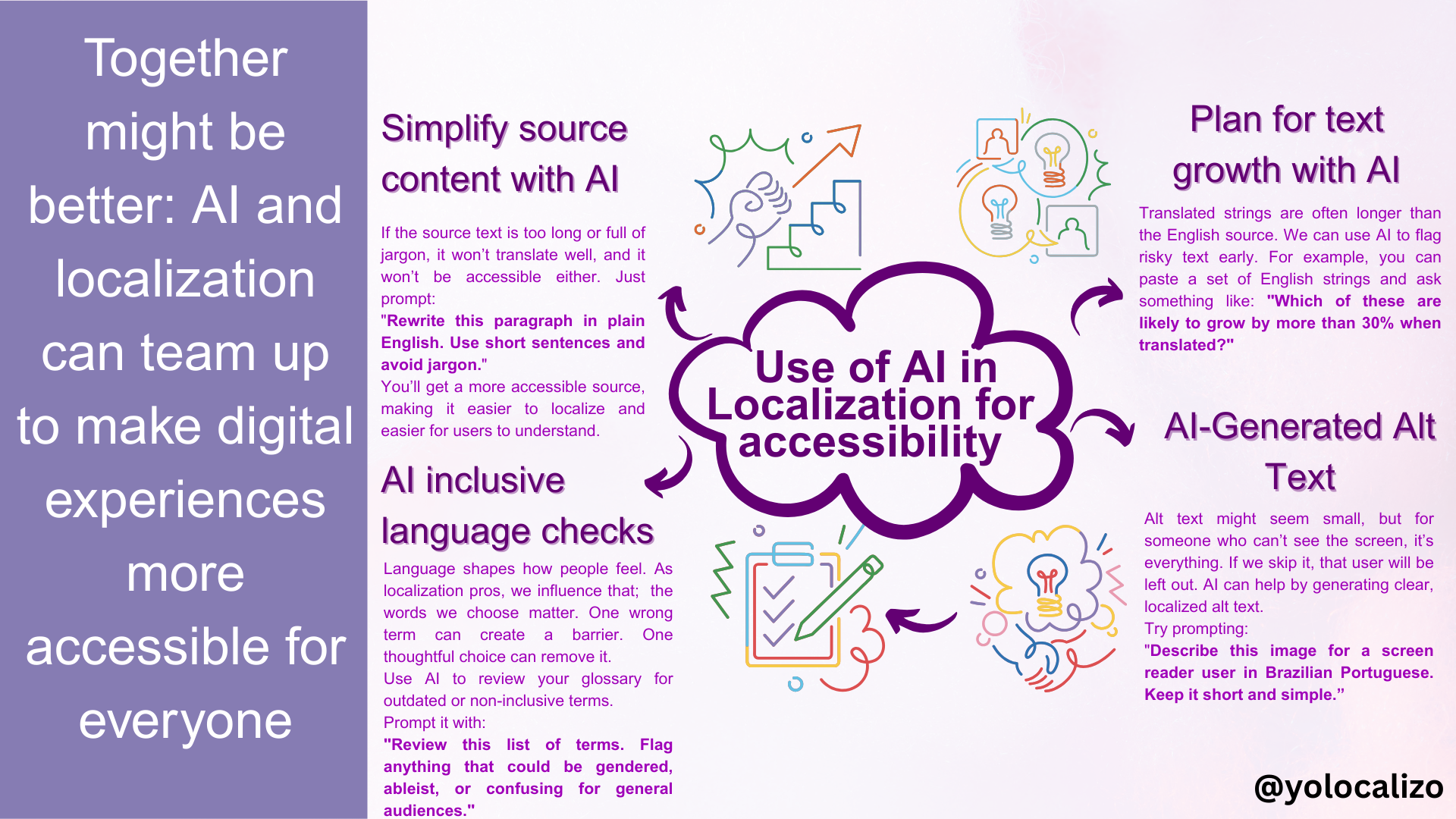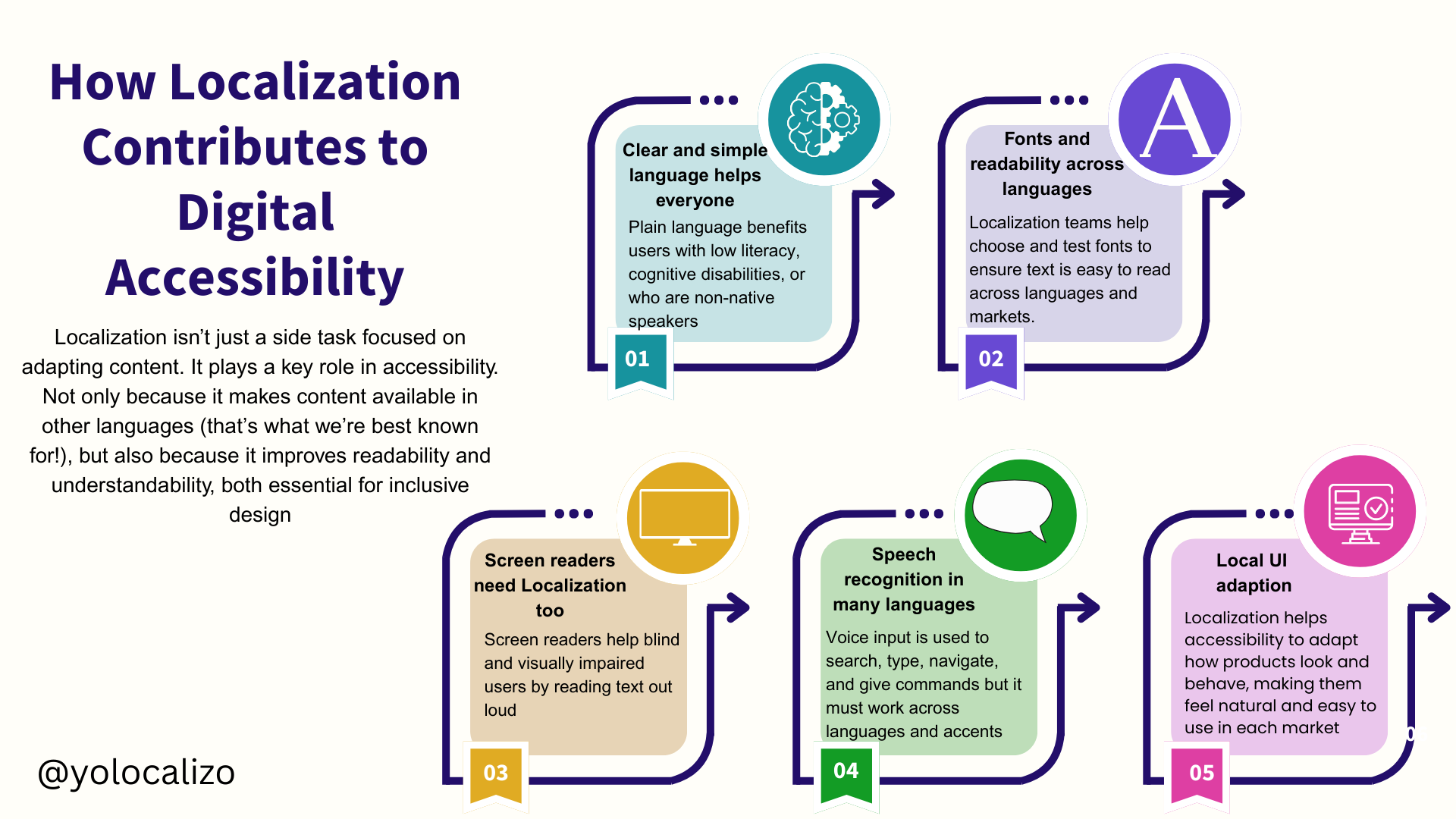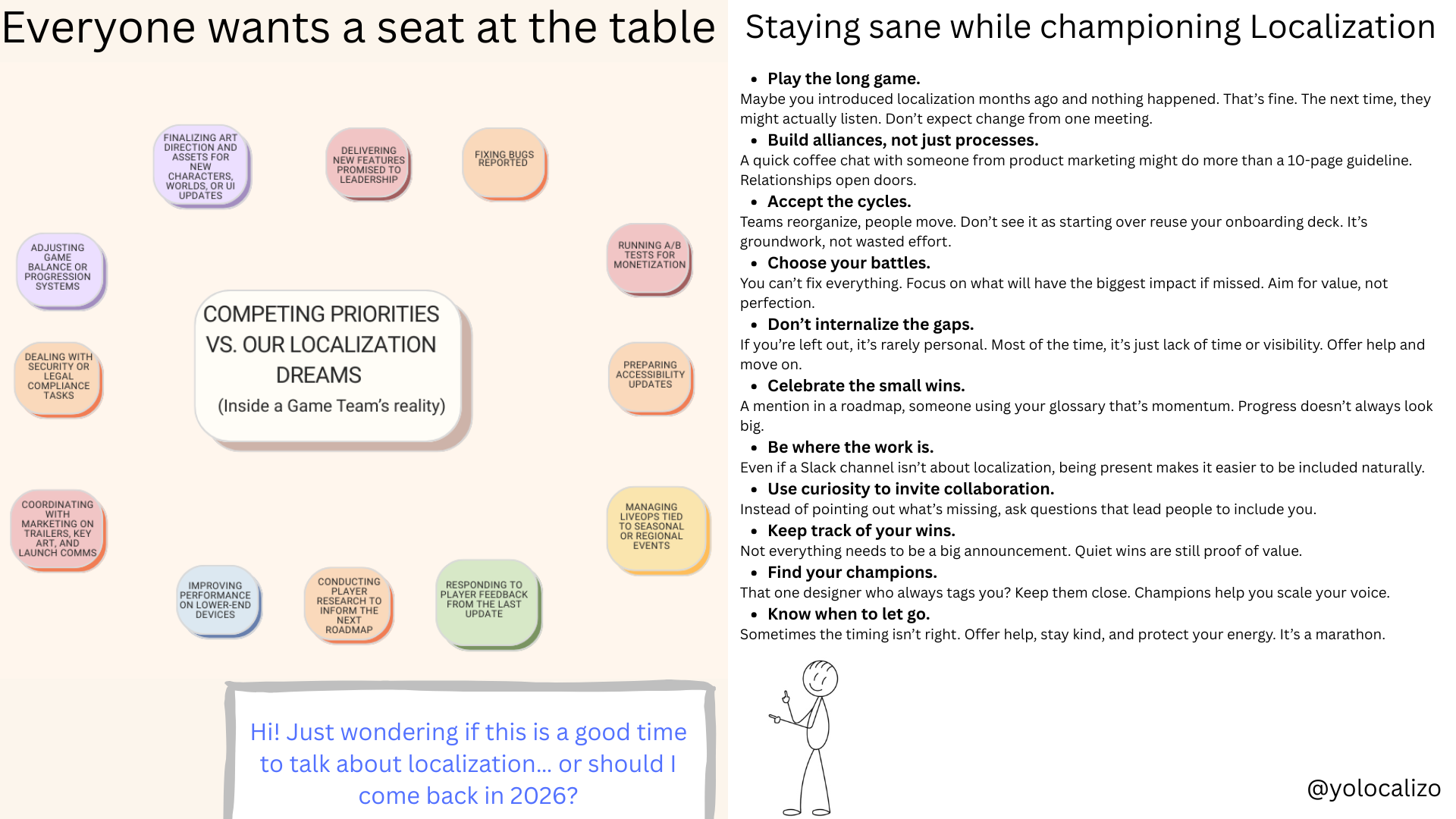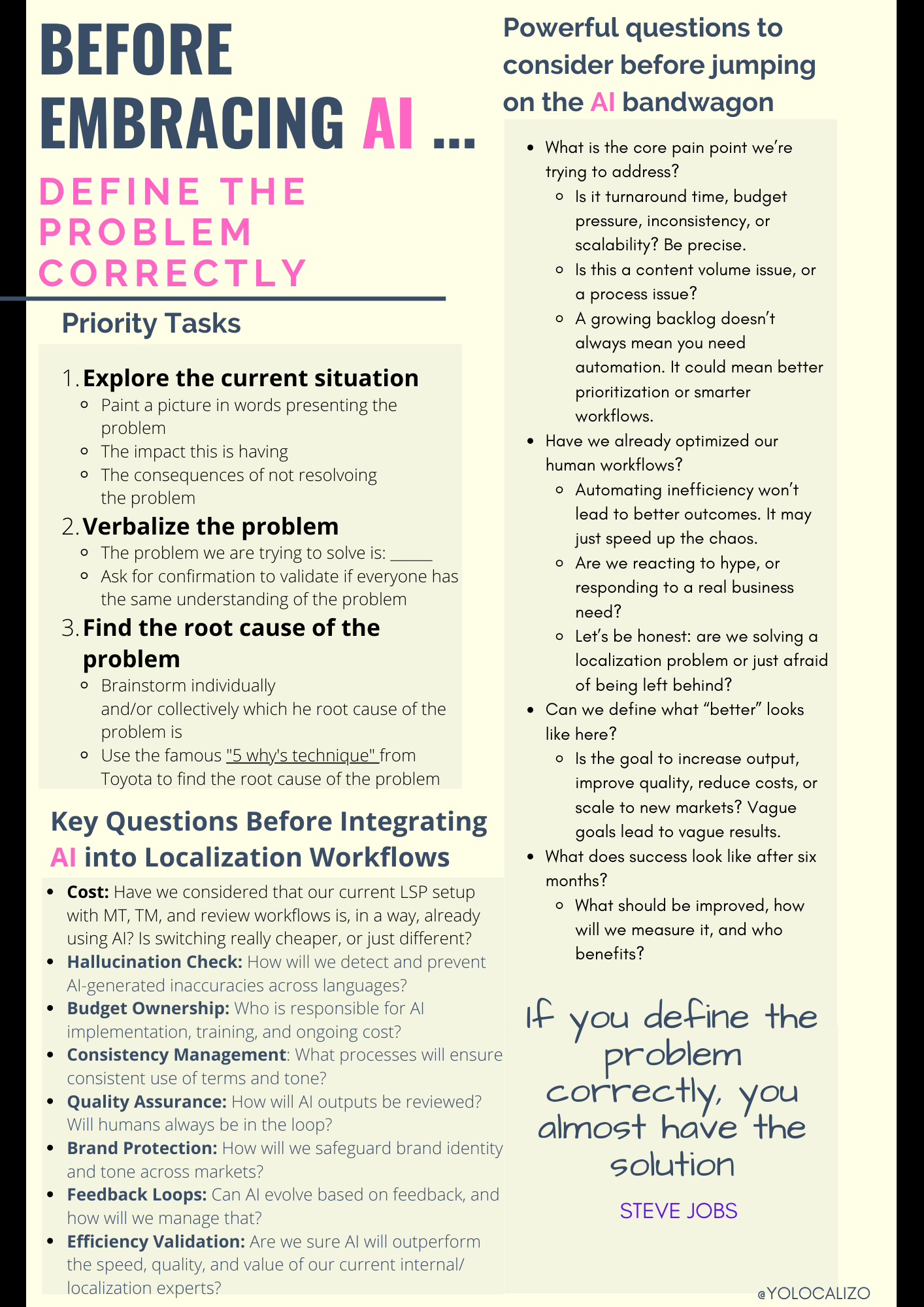What got you here won't get you there: What's needed to get a promotion as a localization professional?
One of the things I have been asked the most during my career, either in a talk to university students or in my 1:1s with members of my teams, is a question I even ask myself frequently....:
What does it take to get a promotion in the localization industry?
And when I answer, I often see disappointed faces, even I get disappointed myself when I answer myself because the answer is... I don't know.
I don't know what is necessary to get a promotion. I don't know in the sense that, in many occasions, especially for senior positions, we can't view a promotion as a list of skills and responsibilities that we check off, and when we have checked off the last box, then the promotion happens. No list tells you what you must do to be promoted, and every company is different, making generic advice of little help.
A personal trait of mine is that when I don't know something, I get obsessed with it. I can't stop asking it continuously, and I read books, and research on the Internet until I have something tangible that can help me understand it a little bit better. So, while it is true that I don't have the infallible answer of what it takes to get a promotion in localization positions, I have been able to research (and find) certain patterns of behavior that might help the promotion to happen finally.
Here is a summary of my findings. Spoiler alert: many of these conclusions come from reading different books until, as Steve Jobs said, the dots are connected.
Click HERE to download the image
1.- Behaviors – and a list of things we should stop doing.
I liked the idea of things we should stop doing. This is something I learned from Marshall Goldsmith. Marshall is a renowned executive coach who has coached some of America's most influential leaders and CEOs. He holds a Ph.D. in organizational behavior and has worked with over 100 executives for more than 30 years. I was reading his book, "What Got You Here Won't Get You There," where Goldsmith shares how successful people can move to even greater heights by addressing certain work habits that jeopardize their otherwise outstanding career. In his book, he explains that behavioral problems, not technical skills, are what separate the great from the near-great. He describes how incredible results can come from practicing basic behaviors like saying thank you, listening well, thinking before speaking, and apologizing for mistakes.
I read this book for two reasons. The first is that the title seems very good, maybe a little clickbait, as there are certain parts of the book that have left me a little cold, and I see them as a little empty of content. The second reason is that books with lists of things catch my attention. In this book, we have a list of behaviors that we should stop doing when we want to progress professionally.
In this book, the concept that is introduced, and I liked the idea, is the importance of creating a "To-Stop" list rather than a "To-Do" list. This idea appealed to me because of its simplicity, yet at the same time, it is very effective.
Some of the things I included in this To-Stop list are, for example:
Stop playing the blame game: It's important to take responsibility for my actions and decisions, even when things don't go according to plan. Avoid blaming others for mistakes or setbacks and focus on finding solutions instead.
Stop being a "yes" person: As I want to move up the career ladder, i may be asked to take on more responsibilities and projects. While it's important to be proactive and take initiative, I cannot take on more than I can handle. I must learn to say no when necessary and prioritize my workload.
Stop avoiding conflict: Conflict is a natural part of any workplace. As someone who wants to grow, I need to be able to handle conflict calmly and professionally. Avoiding conflict can lead me to larger problems down the line.
Stop multitasking: While multitasking may seem like an efficient use of my time, it can actually lead to decreased productivity and increased stress. I must focus on one task at a time and prioritize my workload.
Avoid being too reactive: I need to be proactive and anticipate problems before they arise.
In the book, we can find a comprehensive summary of behaviors that we can decide to include in the list. I'll leave it here in case it's useful for you.
2.- Look beyond our own Localization department.
When looking for a promotion, it is important to avoid having a narrow focus and look for ways to have a broad perspective of the organization, the different teams, and their objectives. To achieve this, we should make an effort to:
• Get to know other departments
• Attend cross-functional meetings
• Seek out diverse perspectives
• Understand company goals, team goals, and how you, as part of a Localization team, can support those goals.
By doing so, we can gain a deeper understanding of the organization, identify areas of collaboration, and contribute to the overall success of our company.
"Two books I have in my digital devices and that I frequently revisit. They are all about learning to ask good questions and managing up and across."
3.- Learn to be a visionary.
It's important to have a strong vision for the future and continuously generate new ideas to help our team and us grow and succeed. The human being is the only living being that has the capacity to imagine. In Toledo, there is a kind of theme park dedicated to the history of Spain. It is an arid area in the center of Spain, a wasteland, dry. When I was there last summer, I could not help thinking that there was someone who, where I only saw empty land when I drove through there, this person imagined a park with representations of plays, musical works, falconry bird shows, etc. They imagined the park's content, the works that would be represented, the buildings, and the scenarios that compose it. In short, someone was a visionary. That will always help to have a promotion, a vision, a strategy, and ideas of where we can focus our Localization efforts.
Being "visionary" is by no means an easy task, so some of the ideas that we can explore to unleash our creativity would be, for example:
• How do we evaluate Localization success in, let's say, 1-3-5 years?
• Which metrics are we going to monitor?
• What variables are we going to take into account to create the globalization budget?
• What Localization Strategy will we follow to use the globalization budget efficiently (in-house activities vs. outsourcing activities)?
• How are we going to reduce the time-to-market of our app/game/digital product?
• How are we going to ensure that our product is locally relevant, runs smoothly, and is ready to scale globally?
• How are we going to ensure our app code is ready to function in different markets (known as internationalization (i18n) within our loc nerd community)?
• How will we prepare the product to ensure that it is culturally relevant and adapted to local needs?
Setting aside weekly time to reflect on the future, and learning from the trends of localization, are actions that can help us to have a performance more aligned with the idea of being a visionary.
4.- Learn to Ask Questions
One of the patterns I have observed when analyzing and reflecting on actions that can help get a promotion is learning how to ask questions. The skill of learning to ask questions can help us a lot in achieving promotion. When we ask good questions, we demonstrate critical thinking skills, identify opportunities for improvement and demonstrate a commitment to learning. After all, asking questions is a sign of curiosity. Also, it shows that we can analyze information, identify key issues, and make informed decisions. In my search to learn to ask questions, I can recommend the book "The Coaching Habit: Say Less, Ask More & Change the Way You Lead Forever" by Michael Bungay Stanier. This book provides practical tips and strategies for professionals who want to ask better questions and become more effective coaches.
5.-Learn How to Speak "Data."
One of the things I often comment on lately is that localization industry professionals are much better at talking about linguistic quality metrics, on-time delivery, or the average cost per word than talking about the impact of our activities. And one thing I have realized is that to grow professionally, we have to learn to speak not only about localization metrics but also about data and impact metrics. If we are prepared to answer the question of how our localization work impacts the company revenue or what the impact of doing localization activities x, y, and z is, we will be accumulating more tickets to win the promotion lottery.
6.- Learn Stakeholder Management
I read a Harvard Business Review book, "Manage Up and Across," which opened my eyes to the importance of managing in all directions. Many times when I think of managing, the first thing that comes to my mind is managing "down." This book helped me understand that managing up, right, and left is essential to acquire the necessary skills to make us eligible for a promotion. The book deals with relevant areas such as getting what you need from people who don't report to you, coping with micromanaging, or navigating office politics, to name a few examples.
Summary
There is no clear and definitive list of what we must do to get a promotion because various factors, such as company culture, industry trends, company performance, and individual performance, often determine promotions.
Promotions are typically based on a combination of factors, including our skills, experience, achievements, leadership qualities, and overall performance.
And while it is true that there is no checklist for getting a promotion, what I feel after reading a lot about the subject and having been working in the localization industry for many years now is that learning to speak the language of metrics, learning to ask questions, learning to collaborate with key teams, and learning to be "a visionary" are characteristics that sooner or later will help us to continue progressing in our career development. Whether cultivating these skills and behaviors that I have discussed in this article or others, I wish you the best in your professional development, and as Howard Schultz says in his book about Starbucks... onwards and upwards, I wish you success!
@yolocalizo













If we want to treat localization like a product, we need to measure it like one. Traditional metrics like cost per word and delivery time still matter, but they don’t capture the full picture. In this post, I share four categories of product-style metrics: adoption, automation impact, strategic influence, and internal visibility that they can help you track the real value your localization team is creating across the company.